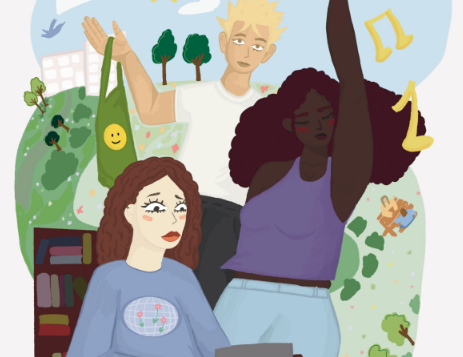Adapting to student life is quite exhausting and at the same time quite daunting, either as a new student or as someone who is returning to pursue their studies after taking a break or having gained some work experience.
Usually, students stay at accommodation not far from the university, some drive or take public transport to commute from further afield. Staying nearer to the university saves time but at the same time staying away from home can come with more chores: laundry, cooking, cleaning, etc.
One important skill for students is time management, balancing their time between studying, doing chores, commuting, attending lectures, part time jobs, socialising, and completing assignments. All these tasks look and sound terrifying, but that doesn’t mean one should compromise their well-being completing them. A healthy lifestyle is vital as this not only prevents you from falling ill but also, if done right, improves brain function. Having takeouts or eating out is fine every now and then, but eating home cooked food is better, as it’s not only healthy but also relatively cheap (though it does require some effort to do). Exercise is another way to relax one’s mind and to stay fit. Last but not least: sleep, no human in this world can function without sleep, lack of sleep is counterproductive and may result in poor performance.
Budgeting is another vital skill as one needs to have enough money to spend on food and daily necessities and at the same time have some spare money to hang out with friends. Carefully planning expenses is really important. Some find this hard so they try to take on some part time jobs which helps them earn extra cash but can also significantly boost their CV, making them stand out from their competitors. Some individuals are also on a loan; for them this is ‘killing two birds with one stone.’
Returning to academia after a break can be challenging, especially when trying to figure out effective study methods. But fear not, just by surfing the internet we can access so many useful techniques that would help to better retain information. There are also libraries with valuable resources, videos on YouTube and various research papers that can help enhance one’s understanding. If the struggle persists, it’s not the end of the world (though it really does feel like that): consider reaching out to the lecturer for clarification. If that feels uncomfortable, approaching classmates is a great alternative. They might excel in the topic you find challenging and could provide valuable assistance. If it’s still hard, take a break; there’s no point in getting stressed out and adversely affecting your mental health: close the books, switch on the Television, watch Netflix along with some snacks. A change of pace or mindset may be all you need to figure out the answer to the problem that was torturing you all day.
Another way to relieve stress is by taking part in societies and clubs. There are variety of clubs and it’s a chance to get to know people who share your passions and it presents an opportunity to gain or refine skills. There are also free events and socials that one can take part in, have fun, and just be themselves.
Student life is by no means a cake walk, it’s a phase of life where one has to learn how to balance their personal, student and professional life. But it’s during this phase, one forms cherished and hilarious memories, forges new bonds, deepens their knowledge and gains a small insight into the realities of adulthood.




